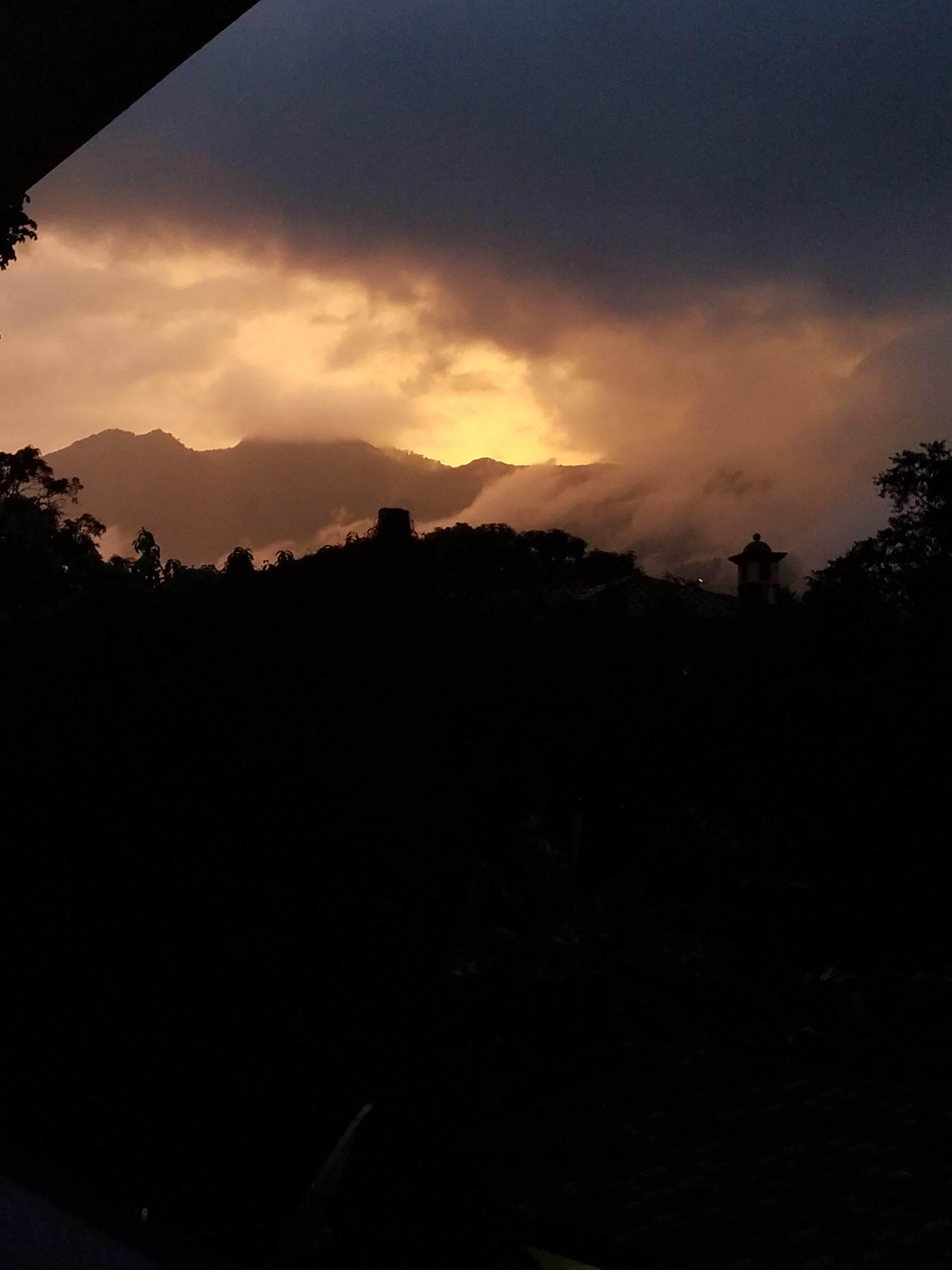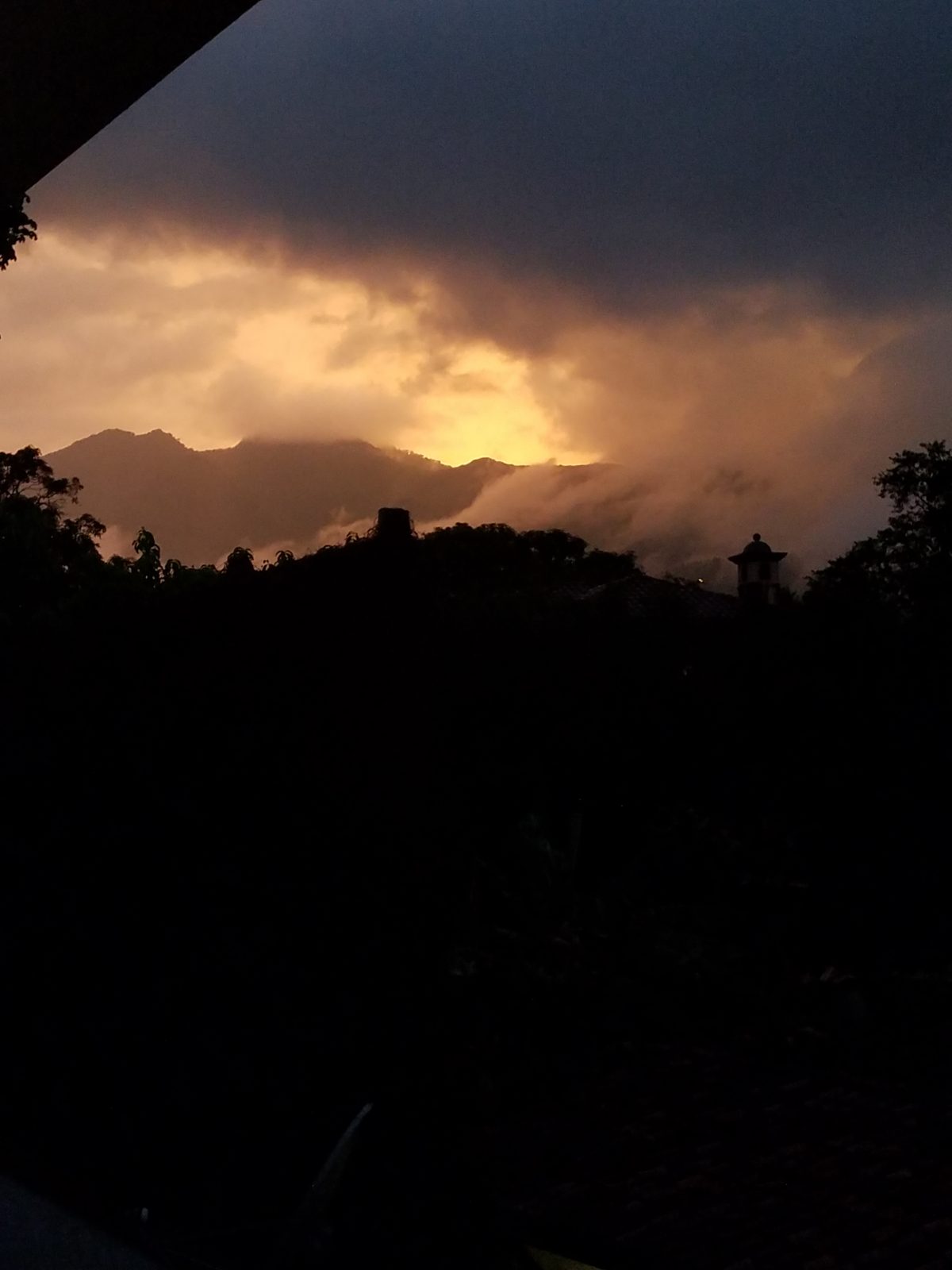Adventures in an ER in CR (a medical and cultural awakening)
Gosh, where to begin?
Let me preface by saying that, as you dear readers know, that I have learned and written much about the enormous cultural differences between the US and Costa Rica. I have altered many of my behaviors and worked hard to gain acceptance by changing the way I deal with my, shall we say, more negative emotions. One reason that CR consistently ranks among the happiest is that people do not confront each other with language or behavior, especially facial expressions, which show that they are pissed off. Even when seething with rage, they will present a blank face or, occasionally, a sullen stare. That’s why we gringos are offensive even when we’re not: complaining about bad service or an incorrect meal in a restaurant or simply asking for something without the first saying Como esta? or Todo bien? is highly offensive, particularly coming from a man.
I know this.
And I have learned to stop rolling my eyes and shaking my head in moments of frustration and annoyance. I always greet others with the appropriate ritual. I say a lot of muy amable and muchissimas gracias. And I never raise my voice or demand anything. But it’s still not enough.
Last Tuesday, I woke up with severe abdominal pain. As I got through the day, it worsened. I had a class scheduled to begin at 3:30, so I decided to tough it out. During class, I was sweating and very nauseous. I mentioned that I had a stomachache and not to take it my expressions personally. Everyone was kind.
After that, I decided to go to the ER. I called my brother-the-doctor and told him that I feared that I had appendicitis. Upon hearing my symptoms, he suspected kidney or gall stones, but urged me to the ER nonetheless. Spoiler alert: He was right.
After divesting myself of my watch and all but one credit card, I called my neighbor, who happened to be an ER doc at a well-reputed public hospital. I wanted to know what it would cost to go to a private ER, here known for excellent care at a much lower cost than in the US. (I was less concerned about actual ER costs than those for a possible surgical procedure.) He said that a surgery could cost a few thousand dollars. If I chose to go to his facility, he offered to speak to the hospital on my behalf. I hoped that, with a good word from him, the care would be fine, if less luxurious than at a private hospital. I also figured that I would probably be the only gringo. However, I was confident that my language skills were adequate, and I would muddle through. I never even considered that my presence might offend.
As you know, in every country, those who go to hospitals need loved ones to advocate for them. Without that, I was extremely lucky to have my neighbor.
When I arrived, I was quickly sent to triage and then to the night shift doctor’s examining room. He was incredibly attentive and kind. During the next several hours, he spoke to me and sent me for tests, including an ultrasound. I had calcios renales, kidney stones, in my bladder. The reason that they’re so painful is that they pass from the kidney to the bladder through the ureter, which is very tiny. His main concern was that my blood markers showed diminished kidney function and that there might be bigger problems. At least I was in good hands. For the moment…
Once seated on a small, plastic chair, where I would remain for six hours (with kidney stones), I became aware of a problem with the staff. Many didn’t seem to like my being there and never arrived with the IVs and meds ordered by the doctor. Maybe they considered me a rich gringo using public dollars or resented that I got so much of the doctor’s attention and time. (Never mind that I pay for my public insurance and that few other than the doctors speak English.) For whatever reason, I was not being supported by support staff to anywhere near the same degree as the other patients. They would talk a patient on either side and then walk past me. First I thought they were anxious about attempting communication. But, it was, I learned, more than that.
When a young man rolled me in a wheelchair to the ultrasound department, he was cold and silent. When we arrived, he shoved my wheelchair and let it go until it bumped up against a dumpster and he walked away. In the ultrasound room, the technician, also silent, started smearing gel on my stomach and sides and slathered it on my shirt. When I politely asked her to wait a moment while I pulled my shirt up, she stopped me: “Don’t worry. It’s only water.” And the guy never came back to roll me back to the ER. I walked around, got lost, and finally found my way back.
Early on, the doctor had ordered several IV fluids, for hydration, pain and anti-inflammatories. It took me a long time to notice that the bags weren’t draining. Each time I checked, someone had closed the valve. Even when a bag did finish, no one changed it. So I sat with empty bags attached to my port for three or four hours. Once I saw what was happening, I didn’t complain; I asked the doctor if I could leave. He was surprised and concerned that I hadn’t received all my meds, so I assured him I’d be back the next day, when I happened to have an English class with someone in the same hospital. I promised to come in early for the final IV and a follow-up blood test for kidney function. I left at 3:00 am. (Another probable no-no, because patients do as they are told and do not ask to leave.)
Pleasant interlude 1: When I first arrived, I was interviewed at the front desk. Much later, when I read what was written on the form, I noticed, in the Race box, the description: Hispanic American. Ha! I had arrived!
Pleasant interlude 2: A very nice Uber driver brought me home the hospital and, when I started to get out at the end of my street, he insisted on driving me to the property and then walking me into my house. There are very kind and solicitous people here.
So, Wednesday, I went back for two tests and to teach my class. With nowhere to sit, I leaned against a wall for an hour until a chair opened up. My student and friend, a nephrologist, visited me and insisted on seeing my previous test results and talking to the ER docs. Again, this special attention was noticed. When I mentioned how painful the chair was, he took me by the hand to a curtained area two yards away with a long line of comfortable lazyboys. Nobody had mentioned them before.
Four hours later, a doctor trailing several interns walked up to me. He was the urologist on duty. He said he wanted a CT scan to check for more stones and make sure that I wasn’t suffering kidney failure due to blockage or swelling. Since my brother had recommended a CT, I thanked the doctor and mentioned that my brother had wanted me to get one. His sharp retort astounded me: “Tell your brother that we have excellent urologists in this country and we know what we are doing!” (Neither I nor my brother had even implied otherwise.) Yep. So it appears that the resentment is pretty widespread.
The CT scan was either forgotten or scheduled and ignored. By now, the doctors whom I knew were not on duty, and I had no ally. Hours later, when an aide who assumed I was waiting for results learned I had never had it, she scheduled another for 9:00 pm. That happened on time, and I was told to expect the results in one to two hours. Three hours later, I politely asked if they were in; I was told to wait and dismissed.
At 1:00 am, a patient who had been scanned at the exact same time received her results. I was pleased. I still waited quietly for another hour and then politely asked for mine. I was again dismissed. Finally, at 2:45, the dismissive guy went to lunch. I walked up to his replacement and asked for my results. Of course, they were there. He had them for me in 15 minutes. I thanked him and a few others and left, after a 16-hour stay.
My friend the nephrologist called me the next day. He explained that the stones should pass within two days and I should drink lots of water. The severe pain is over, at least until the final passage. I need to have another blood test to check renal function in a week.
I thank god for my three doctors. I shudder to think what would have happened without their help and compassionate and competent care.
And, if I ever again need urgent care, and am conscious to make the decision, I will go to a private and, I hope, more welcoming place for help.
I am home.
I feel better.
And I am sad.

